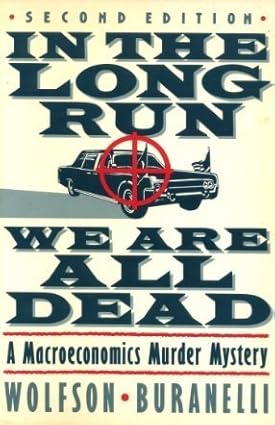 Inglés
InglésIn the Long Run We Are All Dead
Murray WolfsonArrendar
Recíbelo en 24-48 horas arrendado
Cotizar Título
Confirmar Disponibilidad para Compra
In the Long Run We Are All Dead by Murray Wolfson explores the evolution of economic thought, focusing on the lasting impact of John Maynard Keynes and his revolutionary ideas. The book delves into the tension between short-term economic policies and their long-term consequences, emphasizing how governments often prioritize immediate stability over sustainable economic growth. Wolfson examines Keynesian economics in depth, analyzing its influence on fiscal and monetary policies worldwide. He discusses how Keynes' theories were initially embraced to combat the Great Depression but later criticized for contributing to inflation and economic stagnation. The book also evaluates the ideological clashes between Keynesianism and classical economic theories, particularly the debates over government intervention, market efficiency, and the role of central banks in economic stability. Wolfson provides historical case studies, demonstrating how economic policies have shaped different nations over time.
Additionally, In the Long Run We Are All Dead addresses the broader philosophical implications of economic decision-making, exploring the ethical and political dimensions of economic policies. Wolfson critiques the tendency of policymakers to favor short-term solutions, often at the expense of future generations. He argues that economic models must account for long-term structural challenges, such as income inequality, debt accumulation, and financial crises. The book presents a nuanced discussion on the balance between government intervention and free markets, questioning whether Keynesian principles remain relevant in today's globalized economy. Wolfson also considers alternative economic frameworks that could address contemporary economic challenges. Ultimately, the book provides a comprehensive analysis of how economic policies evolve, emphasizing the need for a more forward-thinking approach to economic governance.